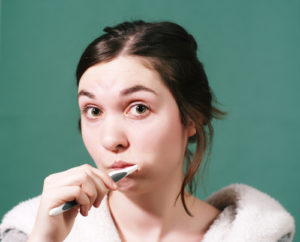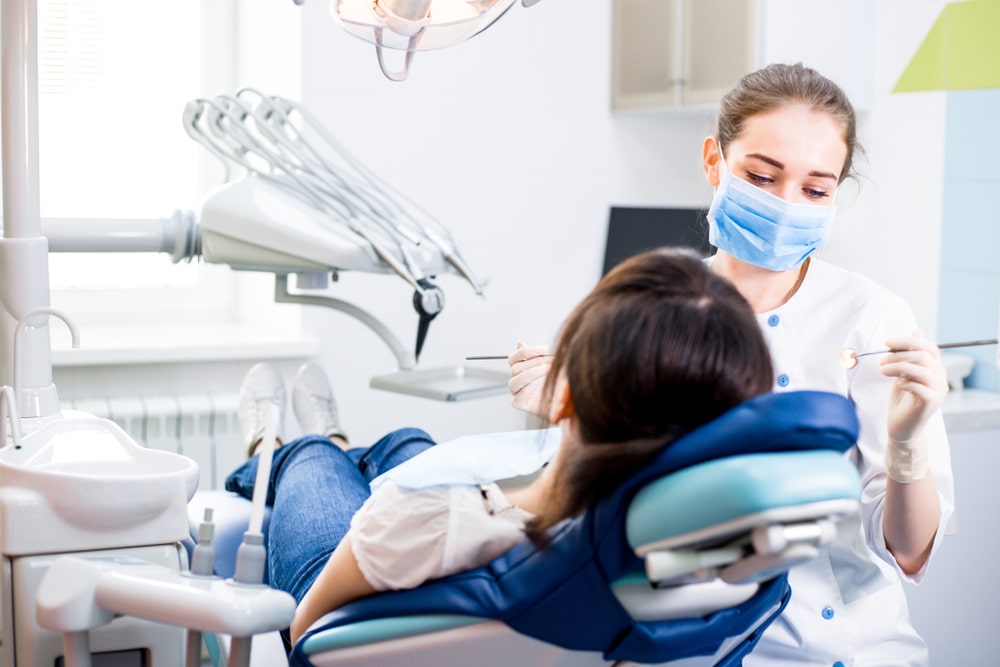Have you ever been brushing your teeth or eating a certain food and suddenly thought of a dental question, only to forget it by the time your next checkup rolled around? Don’t despair! We’ve got the answers to a few common oral care questions we hear at our dental practice.
Why does spinach make my teeth feel gritty?
Believe it or not, the reason your teeth feel dirty or gritty after eating spinach is because of its high calcium content. That’s right, the very thing that helps make spinach so good for us can often drive would-be fans away. When those elevated levels of calcium combine with another ingredient in spinach, oxalic acid, the two form crystals that cause both the slight bitterness in the leaves and that weird (but totally harmless) gritty feeling on your teeth.
Why does orange juice taste so terrible after brushing your teeth?
Ever wondered why your sweet, delicious orange juice suddenly tastes like bleach after you brush your teeth? While scientists don’t really know why this happens, the widely accepted theory is a reaction to the sodium lauryl sulfate (SLS) in your toothpaste, which is the ingredient that causes your toothpaste to foam. The SLS lowers the surface tension of saliva, which generates bubbles. Unfortunately, it also temporarily masks your sweet receptors and promotes your bitter receptors, so when you go take a big gulp of orange juice after brushing, you’re only tasting the sour, bitter undertones and missing all the sweetness.
When is the best time to brush your teeth?
Studies have shown that approximately one in four adults don’t brush their teeth more than once a day. In addition to being far less than the recommended twice a day for three minutes, if you’re not brushing at the right time, those precious few moments you are brushing aren’t doing you as much good as they could.
If you are one of these 25 percenters, make that one brush per day count and brush your teeth before bed. Why bedtime? Because as you sleep, the bacteria that cause cavities are running wild in your mouth. Going to bed with dirty teeth provides them the perfect opportunity to eat away at the sugars on your teeth, leaving behind dangerous, cavity-causing acid that erodes your tooth enamel. By brushing before bed, you’re not only eliminating as much of those nasty bacteria as you can, but you’re also cutting off their food supply. So, if you really must brush only once a day, aim for before bed, and reconsider not brushing when you get up. Your teeth will thank you!
Can you reuse the same flosser on every tooth?
Floss picks can help reach those awkward angles in the back of the mouth that can be hard to reach with traditional floss, but they aren’t meant to use between every tooth. Think of picks the same way you think of toothpicks: They’re there to help get tough-to-reach particles or food from between two teeth. In fact, it would be cost prohibitive, wasteful and dangerous to use picks between more than one set of teeth, because most flossers have less than 1 inch of available floss. When you use the same piece of floss over and over, you aren’t removing bacteria, you’re just redistributing it, and pushing it down further than it may have gotten without the help of your floss.
If you have trouble reaching back teeth, consider purchasing a reusable flossing aid that holds your floss in place and allows you to move to a clean piece of floss between each set of teeth. If you must keep the disposable picks, be sure to only use them between the teeth that truly need them, and only use each flosser once.
Still have questions, or need to set up an appointment? Give Dr. George’s office a call at 724-934-3422.




